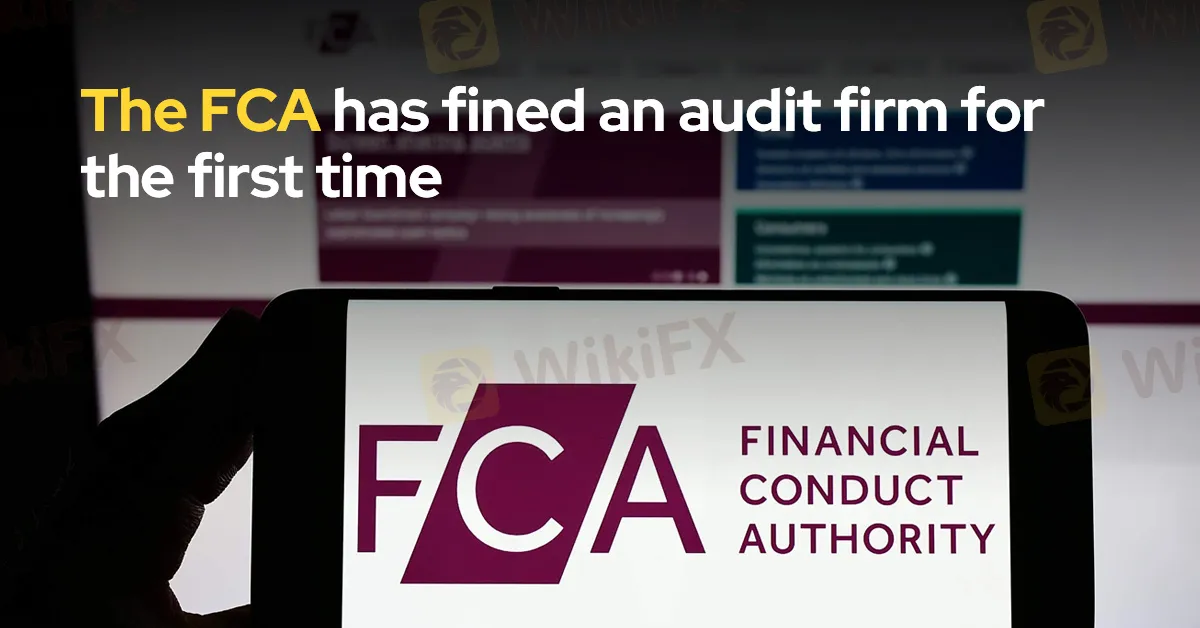简体中文
繁體中文
English
Pусский
日本語
ภาษาไทย
Tiếng Việt
Bahasa Indonesia
Español
हिन्दी
Filippiiniläinen
Français
Deutsch
Português
Türkçe
한국어
العربية
The FCA has fined an audit firm for the first time
Abstract:The Financial Conduct Authority (FCA) has imposed a fine on PricewaterhouseCoopers LLP (PwC) for the first time, marking a significant development in the regulation of audit firms. The fine was issued due to PwC's failure to report suspicions that London Capital & Finance plc (LCF) might be involved in fraudulent activity during their audit of the company's 2016 accounts.

The Financial Conduct Authority (FCA) has imposed a fine on PricewaterhouseCoopers LLP (PwC) for the first time, marking a significant development in the regulation of audit firms. The fine was issued due to PwC's failure to report suspicions that London Capital & Finance plc (LCF) might be involved in fraudulent activity during their audit of the company's 2016 accounts.
The audit of LCF in 2016 presented numerous challenges for PwC. A senior individual at LCF exhibited aggressive behavior toward the auditors, and the firm provided inaccurate and misleading information throughout the process. These issues made the audit exceptionally complex, leading to delays and raising concerns within PwC about the legitimacy of LCF's operations.
Despite these red flags, PwC ultimately concluded that LCF's 2016 financial statements were accurate. However, PwC had developed suspicions during the audit that LCF might be involved in fraudulent activities—a concern that they were legally obligated to report to the FCA. PwC's failure to report these suspicions, whether they persisted or not, is the basis for the FCA's fine.
LCF's downfall began in January 2019 when the FCA ordered the company to retract misleading promotional material related to the sale of mini-bonds, a move that led to the firm entering administration. The promotional material had misled thousands of investors by not fully disclosing the risks associated with the products. The Serious Fraud Office (SFO) is currently conducting a criminal investigation into the collapse of LCF, further underscoring the gravity of the situation.
Therese Chambers, Joint Executive Director of Enforcement and Market Oversight at the FCA, emphasized the critical role auditors play in maintaining market integrity. She stated, “Auditors have a central role to play in keeping our markets clean. They have privileged access to information and they are required by law to report suspicions of fraud to the FCA. There were several red flags that led PwC to suspect fraud. They should have acted on them immediately. Their failure to do so deprived the FCA of potentially vital information.”
This unprecedented fine serves as a stern reminder to audit firms of their responsibilities in identifying and reporting potential fraud, reinforcing the FCA's commitment to safeguarding the integrity of the financial markets.

Disclaimer:
The views in this article only represent the author's personal views, and do not constitute investment advice on this platform. This platform does not guarantee the accuracy, completeness and timeliness of the information in the article, and will not be liable for any loss caused by the use of or reliance on the information in the article.
Read more

The Hidden Checklist: Five Unconventional Steps to Vet Your Broker
Forex broker scams continue to evolve, employing new tactics to appear credible and mislead unsuspecting traders. Identifying these fraudulent schemes requires vigilance and strategies beyond the usual advice. Here are five effective methods to help traders assess the legitimacy of a forex broker and avoid potential pitfalls.

Doo Financial Obtains Licenses in BVI and Cayman Islands
Doo Financial, a subsidiary of Singapore-based Doo Group, has expanded its regulatory footprint by securing new offshore licenses from the British Virgin Islands Financial Services Commission (BVI FSC) and the Cayman Islands Monetary Authority (CIMA).

CFI’s New Initiative Aims to Promote Transparency in Trading
A new programme has been launched by CFI to address the growing need for transparency and awareness in online trading. Named “Trading Transparency+: Empowering Awareness and Clarity in Trading,” the initiative seeks to combat misinformation and equip individuals with resources to evaluate whether trading aligns with their financial goals and circumstances.

Malaysian-Thai Fraud Syndicate Dismantled, Millions in Losses Reported
The Royal Malaysia Police (PDRM) has received 26 reports concerning the Nicshare and CommonApps investment schemes, both linked to a major fraudulent syndicate led by a Malaysian citizen. The syndicate’s activities came to light following the arrest of its leader by Thai authorities on 16 December.
WikiFX Broker
Latest News
ASIC Sues Binance Australia Derivatives for Misclassifying Retail Clients
Top 10 Trading Indicators Every Forex Trader Should Know
WikiFX Review: Is FxPro Reliable?
Malaysian-Thai Fraud Syndicate Dismantled, Millions in Losses Reported
Trading frauds topped the list of scams in India- Report Reveals
AIMS Broker Review
The Hidden Checklist: Five Unconventional Steps to Vet Your Broker
YAMARKETS' Jingle Bells Christmas Offer!
Revolut Leads UK Neobanks in the Digital Banking Revolution
Fusion Markets: Safe Choice or Scam to Avoid?
Currency Calculator


